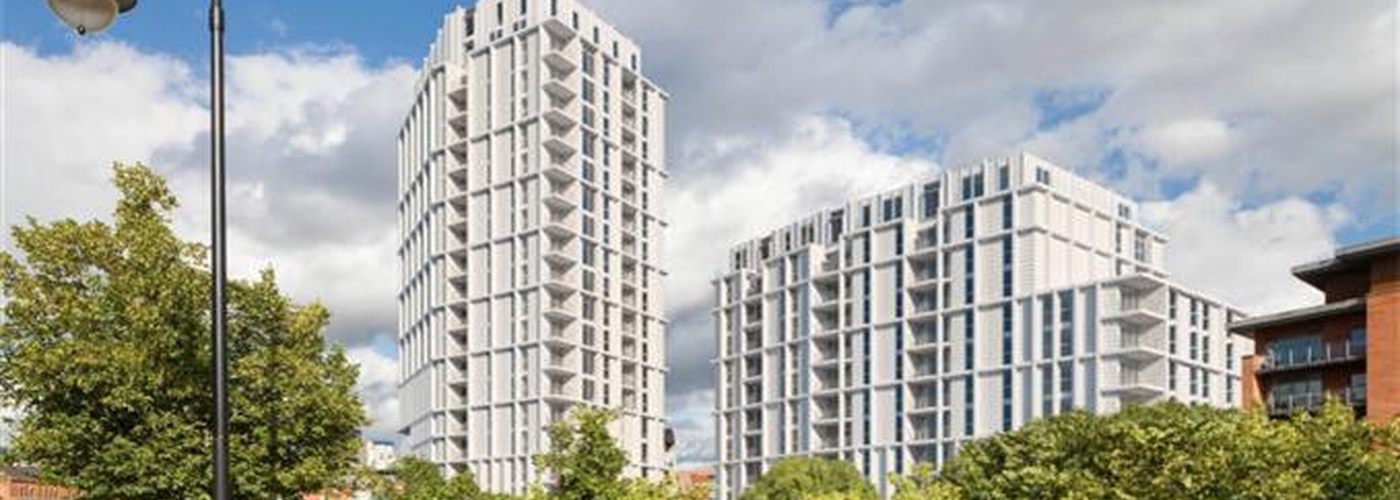Jonathan Schofield talks to Sarah Ramsbottom about a system playing with public engagement
PLANNING POLICY in Manchester city centre is making people angry.
“It took around twenty minutes to sort the future of a major site overlooking one of the key heritage areas in Great Britain,” says Sarah Ramsbottom of Castlefield Estates about planning permission for Renaker Build's 2-4 Chester Road (pictured). “We were staggered that a development in a Conservation Area could sail though the Planning Committee. We were allotted four minutes to state our case. After that there was no right of reply to comments by the developer, there was no way we could make sensible objections to explain our case, nothing to challenge the decision on the day.”
Ramsbottom pauses, her voice a definition of incredulity. “This was a major scheme involving a Conservation Area and towers of 21 and 12 storeys. It will dominate one whole end of the Bridgewater Canal basin in Castlefield for decades, so with due respect, how come that decision at the Planning Committee took just a little longer than the decision over a Levenshulme kebab takeaway?”
Cynics might say that kebabs are just as important as aesthetics and heritage in Manchester planning. Ramsbottom also points out that one of the elected committee members asked if the proposed towers in Castlefield would be made out of red brick. Given numerous images of white stone-clad towers have been available for months this does seem to ask questions about the competency of Committee members.
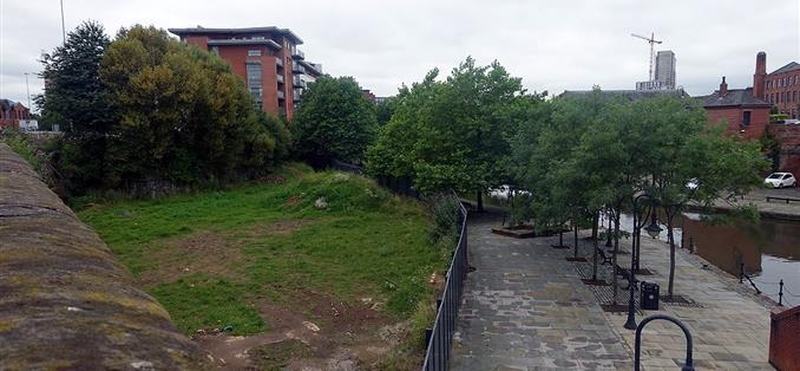
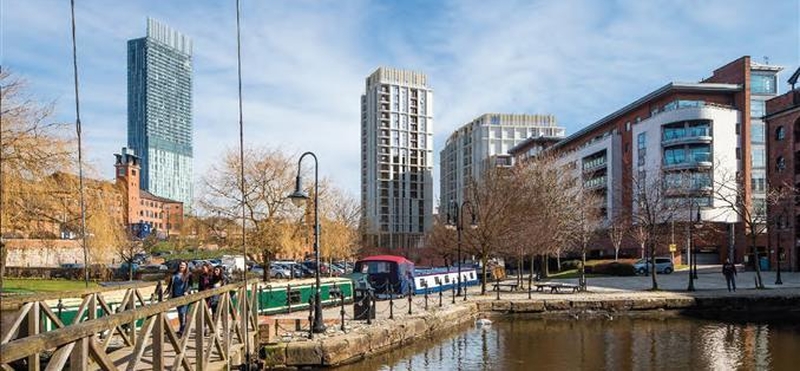
So we asked the council about the qualifications of councillors on the Planning Committee and whether Conservation Area status counts for anything.
'Councillors are nominated for committee roles and are chosen through the Labour group at the AGM,' the council replied. 'Annual training is provided for all committee members and refresher training and updates are provided on legislative and procedural changes when necessary. The committee members operate within the strict guidelines of the national planning and legal framework. They are autonomous and have a quasi-legal status. Although presented with full reports in advance of the meetings for consideration, there will be occasions where members may still require clarity over issues and/or raise particular questions."
As for Conservation Area status: 'Each application has to be considered on its own merits, having regard to national and local policy together with any site specific circumstance. This is evident in the reports to the planning committee, which set out clearly the issues to be addressed and the relevant policy considerations. Comments received regardless of the type of application are given consideration and assessed.'
In other words councillors on the Planning Committee get a bit of training but may be functionally illiterate when it comes to design and heritage issues and the importance of a Conservation Area is flexible as ‘each application is considered on its own merits’. To be fair, a site visit to Castlefield was included before approval was rubber stamped, but only after initial submissions by campaigners against the Renaker Build scheme, not because this was a Conservation Area per se.
"Manchester City Council clearly believe in development in the city irrespective of its impact on its heritage assets"
What is particularly galling to Ramsbottom, is that together with residents and businesses group, Castlefield Forum, "we were never against development of the site."
"Also," she says, "our submissions concerning the design and scale of 2-4 Chester Road were undertaken and delivered professionally. We knew we could only object on planning grounds. We took lots of advice and had an independent report drawn up. All that time and effort was reduced to half a page in the planning report. Meanwhile the report drawn up by Deloitte for Renaker Build came to an opposite conclusion to ours, and unsurprisingly, that was the one which was followed.”
Ramsbottom continues, “We believe there was a clear breach of planning law here as the Conservation Area principle of whether a scheme ‘preserves or enhances the conservation area’ was ignored. At the same time a recommendation from Historic England, the public body that looks after England’s historic environment, to change the design was also rejected.”
In a later statement Ramsbottom says, “The heritage implications simply weren’t scrutinised properly by Manchester City Council, who clearly believe in development in the city, irrespective of its impact on its heritage assets. The planning committee failed to scrutinise the planning law that relates to this application and far too much reliance was placed on the heritage assessment prepared by the developer, Renaker Build, that downplayed its impact on a sensitive Conservation Area, one of the oldest in Manchester. This is a grave error on the part of the local authority.”
As a consequence the campaigners have asked the Secretary of State, Sajiv David, to 'call in' the scheme and hold a public enquiry.
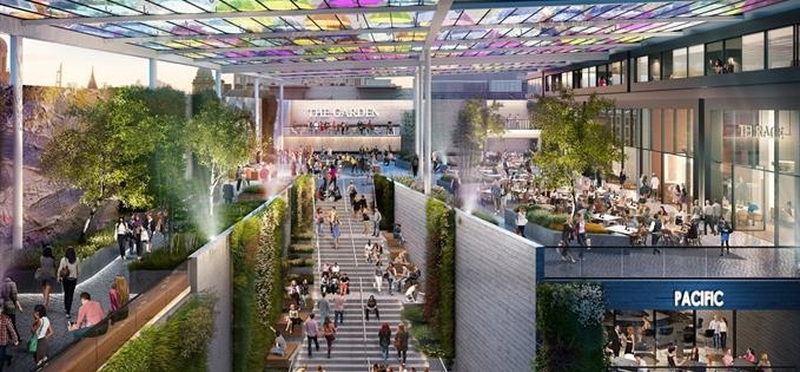
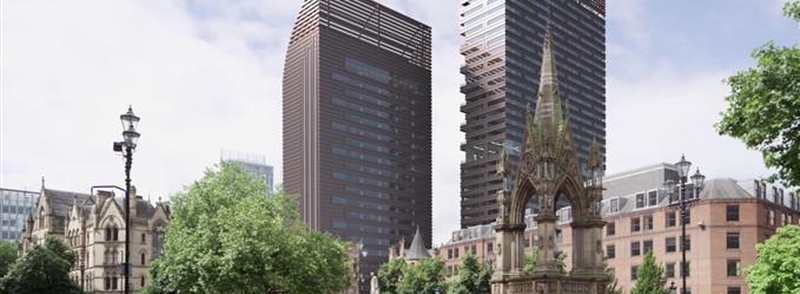
The whole affair has been muddied by Renaker Build over money for affordable housing elsewhere in the city - known as a Section 106 contribution. Initially, Renaker said the economics of 2-4 Chester Road wouldn’t stack up if they had to make such a contribution. This was changed in another submission to ‘the applicant (Renaker) has agreed they will provide a financial contribution towards the provision of off-site affordable housing.’
This could easily be interpreted as a blatant attempt to persuade the Planning Committee to come to a favourable conclusion for Renaker.
The Council says: ‘The applicant (Renaker) did not offer to provide any affordable housing on the basis of their initial assessment of viability. We continued to challenge this, as we always do, as affordable housing is a key objective for the City Council, and as part of ongoing negotiations the developer agreed to a contribution.’
In the current straitened times for councils this seems reasonable, but it also appears to compromise impartial and independent decision making by the Planning Committee.
"The current planning regime cares little for public consultations or written responses, regarding both as visits from troublesome and undesirable relatives"
Winston Churchill once described Russia 'as a riddle, wrapped in a mystery, inside an enigma'. The same could be said of planning policy.
Actually it's worse than that.
To those protesting against developments it seems everything is stacked against them. It's like non-league Droylsden playing nearby Premier League Manchester City. Proximity is about the only thing they have in common. The point of difference here is that, despite the wealth differential, it would still be a eleven versus eleven and City might have a very bad day.
This doesn’t happen with the wave of citizen expression over new developments now happening across the central areas of Manchester and Salford. It is never eleven versus eleven because unlike football the rules seem different for each team. The Planning Process is clouded by jargon, closed meetings, issues that seem like they should matter - such as Conservation Area status - seem not to matter, ‘affordable housing’ clauses muddy the water.
People such as Sarah Ramsbottom at Castlefield Estates and the representatives of Castlefield Forum seem to have done everything right and made all the best arguments and got hundreds of names on a petition yet it turns out all their notions of the value of civic engagement hit brick walls or rather, in this instance, to use the Historic England description, the ‘cool, pale, stark stone’ of 2-4 Chester Road. Meanwhile in developments such as St Michael's and the Neville Towers it seems plain and obviously wrong that the Regeneration Framework was drawn up by developers and architects who are now set to deliver the scheme. Cake and eat it time.
The planning process, as it stands, seems in crisis in terms of allowing reasoned opinion, either aesthetic or practical, from those who live close by or who are affected by a given development. Maybe we should just go back a hundred or more years. At least then it was clear; landowners could build whatever they wanted as long as it wasn’t going to fall down or destroy the amenity of their neighbour. Dead simple. Don't pretend to involve the public in decision making.
The current planning regime plays at engagement. It appears to care little for public consultations or written responses. It seems to regard both as visits from troublesome and undesirable relatives, a duty rather than a virtue.
Mancunians would love to believe planning policy is not, as Ramsbottom says, solely about economic 'development in the city, irrespective of its impact on heritage assets'. If it can't be more than simply economic development we really do have a kebab shop system.
Like this? Want to know more about what's going on in the city? Sign-up to our daily newsletter.





